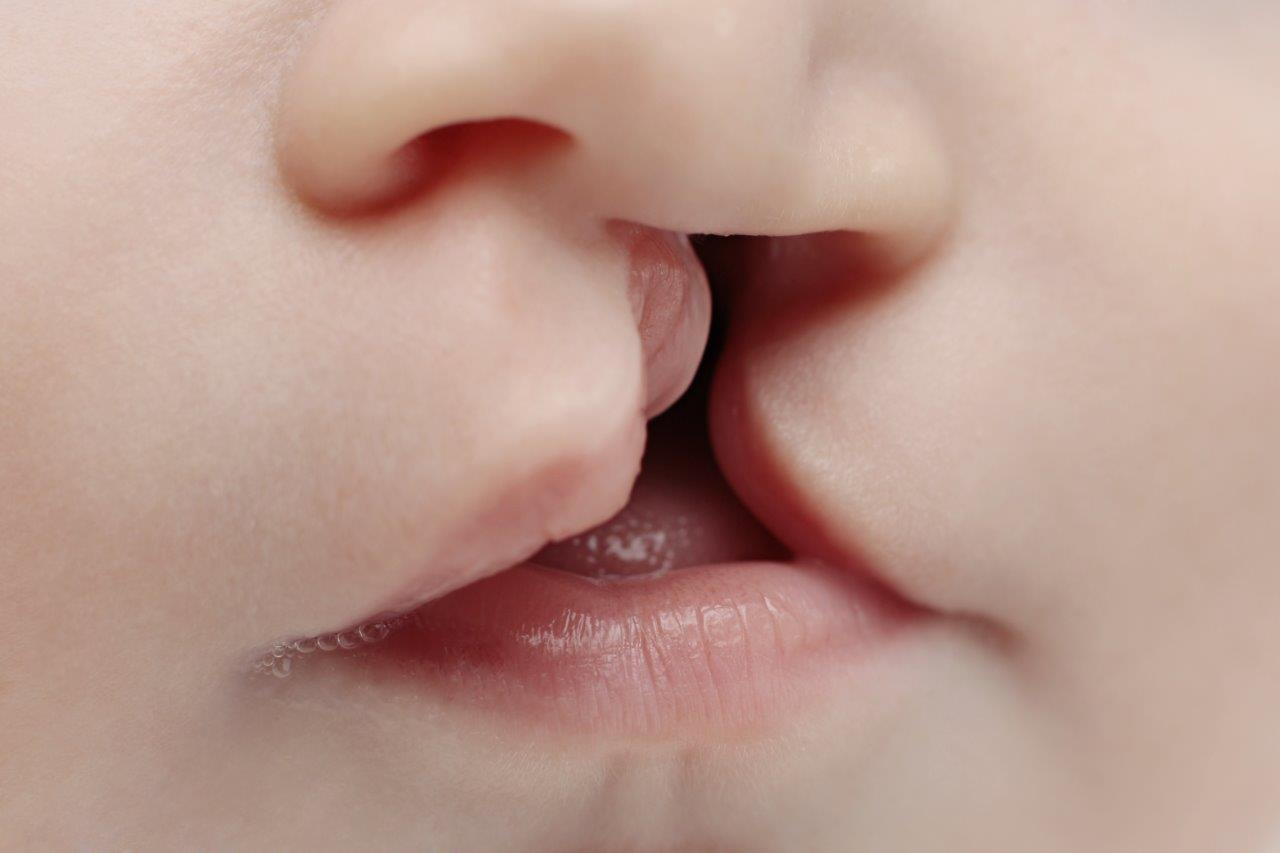


Cleft Lip & Cleft Palate Deformities Treatment in Dubai at Emirates Hospitals Group. Cleft lip and cleft palate are among the most common facial deformities that affect newborns worldwide. These conditions can have significant implications for a child’s feeding, speech, hearing, and overall facial development. At Emirates Hospitals Group, we are committed to providing world-class care and treatment for children born with cleft lip and palate deformities. With a team that includes the best oral and maxillofacial surgeons in Dubai, we ensure comprehensive care that addresses not only the cosmetic concerns but also the functional challenges associated with these conditions. Our state-of-the-art medical facilities and experienced multidisciplinary team work collaboratively to provide exceptional results, improving the quality of life for our patients.
- About
- Treatment
- Causes

About Cleft Lip & Cleft Palate Deformities Treatment
Cleft lip and cleft palate deformities occur when there is an incomplete development of the lip and/or palate during fetal growth. A cleft lip is a separation or opening in the upper lip that can extend into the nose, while a cleft palate is an opening in the roof of the mouth that can affect both the hard and soft palate.
At Emirates Hospitals Group, we offer advanced, minimally invasive surgical procedures to repair cleft lip and palate deformities. The primary goal of the surgery is to close the cleft and restore normal function to the lips, mouth, and palate. Our treatments are individualized based on the severity of the condition and the patient’s specific needs, including speech therapy, dental interventions, and ongoing monitoring of hearing and feeding.
Surgical intervention for cleft lip typically takes place within the first 3 to 6 months of a child’s life, while cleft palate repair is usually performed before the child turns 18 months. Our expert surgeons ensure that each procedure is meticulously planned and executed, using the latest surgical techniques to provide the best possible functional and aesthetic outcomes. Follow-up care is critical, and we offer a comprehensive rehabilitation plan to monitor the child’s speech, hearing, and dental development as they grow.

Treatment for Cleft Lip & Cleft Palate Deformities
Cleft lip and cleft palate are congenital deformities that occur when a baby’s lip or mouth does not form properly during pregnancy. Treatment typically involves surgery and other therapeutic interventions to correct the defect and address associated issues like feeding, speech, and dental problems. At Emirates Hospitals Group, we provide comprehensive care for cleft lip and palate patients, using a multidisciplinary approach involving oral and maxillofacial surgeons, plastic surgeons, speech therapists, orthodontists, and pediatricians.
Surgical Treatment Options
- Cleft Lip Repair (Cheiloplasty)
-
- Performed when the baby is around 3–6 months old, cleft lip repair surgery involves closing the gap in the lip. The procedure is usually done under general anesthesia, where the surgeon makes precise incisions on either side of the cleft to create flaps of tissue, which are then stitched together to create a normal lip structure.
- Post-surgery, the child may need additional revisions as they grow, particularly if the cleft involves the nose (affecting nasal symmetry).
- Cleft Palate Repair (Palatoplasty)
-
- Cleft palate surgery is typically performed when the child is around 9–18 months old. The procedure involves reconstructing the roof of the mouth to close the cleft and restore normal function for eating, drinking, and speaking.
- This surgery also prevents fluid from entering the nasal cavity and helps improve speech development. Palatoplasty is essential for normal speech and language development.
- Alveolar Bone Grafting
-
- If the cleft extends into the gum line (alveolar ridge), bone grafting may be necessary to support the teeth and the upper jaw. This procedure is usually done between the ages of 6–10 years, before the eruption of permanent teeth.
- Bone is typically taken from the hip or other donor sites and grafted into the gum to create a more stable structure for future dental work, such as orthodontics.
- Orthognathic Surgery (Jaw Surgery)
-
- As children with cleft lip and palate grow, they may develop jaw misalignment or other dental issues that require corrective jaw surgery. This surgery is typically performed in the teenage years, once the jaw has stopped growing, to improve chewing, speech, and facial symmetry.
- Revision Surgery and Scar Revision
-
- Some patients may require additional surgeries as they grow to refine the appearance of the lip, nose, or other facial features affected by the cleft. Scar revision surgery helps reduce the visibility of scars and improve facial aesthetics.
Non-Surgical Interventions
- Speech Therapy
-
- Many children with cleft palate experience speech difficulties, even after palate repair surgery. Speech therapy is crucial for helping children develop clear speech and communication skills. Therapy may continue for several years to ensure optimal language development.
- Orthodontics
-
- Children with cleft lip and palate often need orthodontic treatment to correct misaligned teeth or prepare for future surgeries. This may include braces, retainers, and other devices to guide tooth and jaw development.
- Feeding Assistance
-
- Newborns with cleft palate often have trouble feeding, as the cleft prevents proper suction. Specialized bottles and feeding techniques are used to help infants get the nutrition they need before surgery.

Causes of Cleft Lip & Cleft Palate Deformities
The exact causes of cleft lip and cleft palate are not fully understood, but it is believed that a combination of genetic and environmental factors contributes to these conditions. Some of the primary causes include:
- Genetics: If a family member has had a cleft lip or palate, there is an increased risk that the condition may be inherited.
- Environmental factors: Factors such as maternal smoking, excessive alcohol use, poor nutrition, or the use of certain medications during pregnancy may increase the likelihood of cleft formation.
- Medical conditions: Pregnant women with certain medical conditions, such as diabetes or obesity, may be at a higher risk of having a child with a cleft lip or palate.
- Nutritional deficiencies: A deficiency in certain vitamins and minerals, particularly folic acid, during pregnancy may contribute to the risk of cleft lip and palate deformities.
Frequently Asked Questions
Surgery for a cleft lip is generally performed between 3 to 6 months of age, while cleft palate repair typically occurs between 9 to 18 months. The exact timing depends on the child’s individual condition and overall health, and our team at Emirates Hospitals Group works closely with parents to determine the optimal schedule for surgery.
Most children recover from cleft lip surgery within 2 to 3 weeks, while cleft palate repair may require a slightly longer recovery period. Our surgeons provide detailed post-operative care instructions to ensure smooth healing and successful outcomes.
Yes, many children benefit from speech therapy after cleft palate repair to address any speech or language difficulties. Our multidisciplinary team at Emirates Hospitals Group includes speech therapists who specialize in helping children with cleft-related speech issues.
Like any surgery, there are some risks involved, including infection, bleeding, or scarring. However, the risk of complications is low, and our highly experienced oral and maxillofacial surgeons take every precaution to minimize any potential issues.
Yes, cleft lip and palate can often be detected during routine prenatal ultrasounds, typically around the 20th week of pregnancy. Early detection allows parents to plan for appropriate care after birth, and our specialists at Emirates Hospitals Group are available to offer guidance and support even before delivery.
Request an appointment
Please complete the details and we will book you shortly.
Request an appointment
Please complete the details and we will book you shortly.
